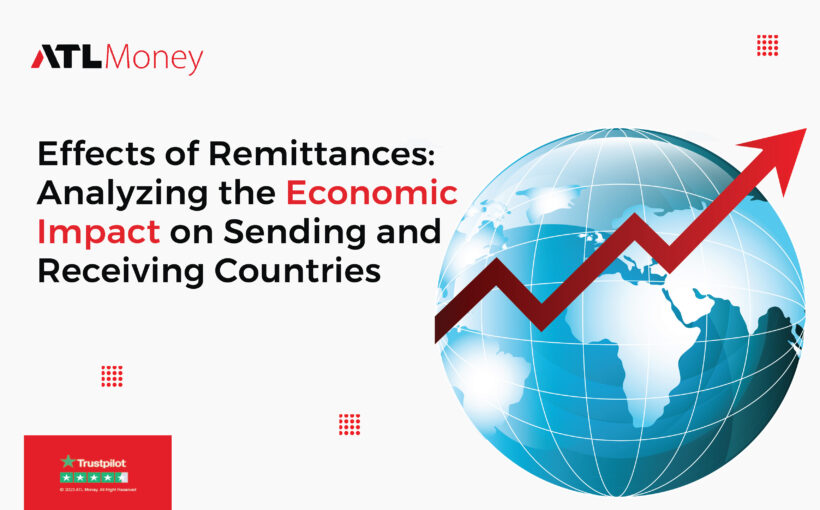- Remittances and Economic Growth: Empowering Developing Nations
- Financial Stability: Alleviating Poverty and Improving Living Standards
- Investments and Entrepreneurship: Catalyzing Economic Opportunities
- Contributions to Foreign Exchange Reserves: Strengthening National Economies
- ATLMoney: Reliable Remittance Solutions for Global Impact
Those of us who work abroad have witnessed the growth of remittances, with money being transferred from their home countries to their own. This has had a profound impact on both the sending and receiving nations’ economies.
In today’s article, we will explore how remittances influence the economic landscapes of both sending and receiving countries, highlighting the significance of these financial inflows and their implications for various sectors.
It’s crucial to understand the economic impact of remittances to fully appreciate their global impact.
Remittances and Economic Growth: Empowering Developing Nations
Remittances represent a vital source of income in many developing countries, contributing significantly to their economic growth. These financial inflows stimulate local demand, fuel consumption, and drive business activities, thereby creating employment opportunities. Increased consumption levels and economic activity ultimately boost the GDP of receiving countries, lifting them out of poverty and promoting sustainable development.
Financial Stability: Alleviating Poverty and Improving Living Standards
Remittances play a crucial role in poverty reduction and improving living standards in the receiving countries. For families receiving remittances, these funds help meet basic needs such as food, shelter, healthcare, and education expenses. By providing a stable source of income, remittances alleviate poverty, reduce income inequalities, and improve overall financial stability in the receiving nations.
Investments and Entrepreneurship: Catalyzing Economic Opportunities
In addition to supporting everyday expenses, remittances also serve as a catalyst for investments and entrepreneurial ventures in the receiving countries. Individuals receiving remittances often use these funds to start or expand businesses, contributing to local economic development. This injection of capital enables the creation of jobs, fosters innovation, and promotes entrepreneurship, driving economic opportunities and fostering sustainable growth.
Contributions to Foreign Exchange Reserves: Strengthening National Economies
Remittances make a significant contribution to the foreign exchange reserves of sending countries. These inflows lead to an increase in foreign currency reserves, providing stability to national economies and enhancing their ability to manage external financial pressures. Robust foreign exchange reserves strengthen a country’s currency value, improve its creditworthiness, and enhance its capacity to handle international trade transactions.
ATLMoney: Reliable Remittance Solutions for Global Impact
For seamless and secure remittance transfers, ATLMoney stands as a trusted international remittance platform. With competitive exchange rates, low transaction fees, and efficient processing times, ATLMoney provides individuals with a reliable solution to send money globally.
The economic impact of remittances is far-reaching, influencing the sending and receiving countries in various ways. From stimulating economic growth and fostering financial stability to promoting investments, entrepreneurship, and human capital development, remittances serve as a vital force for positive change.
As we continue to send money back to our home countries, platforms like ATLMoney ensure reliable, secure, and efficient remittance transfers, empowering both senders and recipients to shape their economies and build a brighter future.
